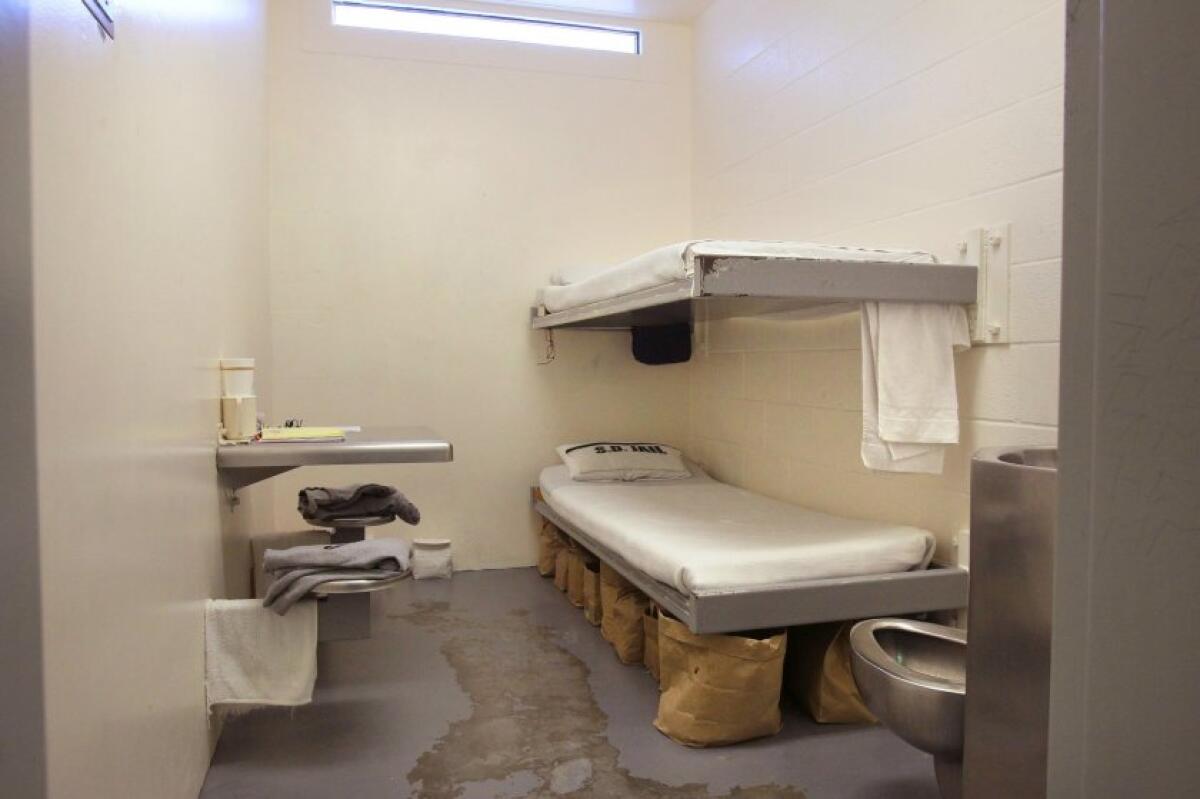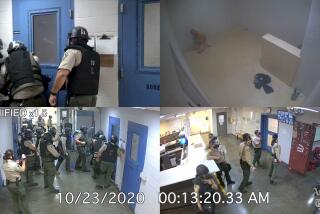State high court decision upholds jury award for man who fell in Vista jail

SAN DIEGO — The California Supreme Court has denied a request by lawyers for San Diego County to review an appeals court decision upholding a multimillion-dollar jury award for a man who suffered permanent brain damage after falling in the Vista jail.
The decision by the state’s highest court effectively ends the county’s efforts to overturn a case that could have been settled for much less than the jury verdict.
In 2019, jurors awarded David Collins $12.6 million. The trial judge later reduced the award to $6.4 million, which was more than double the $3-million settlement proposed by Collins’ attorneys before the trial.
Because the settlement offer was less than the jury award, the county must pay interest that the award accrued while the county appealed the case, said Collins’ attorney, Robert Vaage. Vaage said the interest sits at nearly $650,000, which would amount to a more than $7-million payout.
Vaage said Collins and his family were glad to see the appeals process come to an end.
“It grinds people down,” he said. “I’m really proud that David and his family were able to get through this five-year process.”
Collins was arrested and jailed on suspicion of public intoxication on Nov. 18, 2016. But according to his lawsuit and testimony from medical experts, the 30-year-old was suffering from a viral infection and a near-lethal sodium deficiency that caused hallucinations and behavior similar to intoxication.
That afternoon, Collins had called 911, believing he saw two men in his Carlsbad apartment. Deputies who responded assumed Collins was drunk and left after nine minutes, according to court records.
Later that night, Collins wandered away from his apartment and fell into a planter, drawing the attention of a passerby who called 911 to report someone in need of medical help.
Paramedics arrived first, followed by the same deputies who had been to Collins’ apartment that afternoon. The paramedics were in the process of evaluating Collins when the deputies arrested him for public intoxication.
At the jail, medical staff assumed Collins was drunk and failed to consider that a medical condition could be causing his behavior, according to the lawsuit. In a holding cell, Collins fell and hit his head, causing a brain bleed, but it wasn’t until the following afternoon — roughly 13 hours after Collins had been booked into jail and after he fell and struck his head a second time — that a nurse summoned paramedics, the lawsuit said.
Jurors found that the two sheriff’s deputies who arrested Collins and two jail nurses who evaluated him were negligent in not seeking immediate medical attention.
Collins was taken from the jail to Palomar Medical Center, where a doctor administered a medication that elevated the sodium in his blood too quickly, causing further brain damage, the lawsuit said.
Palomar Medical Center agreed to a $2.75-million pretrial settlement.
County lawyers appealed the jury verdict to the 4th District Court of Appeal, which took nine days to review the case in February. A three-judge panel sided with jurors, finding that deputies negligently interfered with the paramedics’ assessment of Collins and that a jail nurse failed to follow the jail’s policies to assess the medical condition of potential inmates.
A county spokesman did not respond to a request for comment.
Vaage said county lawyers told him they will send a check on July 1. The county is self-insured, so the cost will be borne by taxpayers.
Before he was injured, Collins was a construction worker who specialized in sheet metal roofing.
At the November 2019 trial, medical experts testified that Collins would never be able to hold a job and would need significant medical care throughout his life, including assistance with day-to-day tasks.
Vaage said the jury verdict was a relief to Collins’ parents.
“David’s parents don’t have to worry that David won’t be taken care of,” he said.
Vaage said that because the Supreme Court rejected the county’s request, the appeals court ruling is considered legal precedent and can be cited in similar lawsuits.
“Hopefully other people like David will be protected,” he said.
Davis writes for the San Diego Union-Tribune.
More to Read
Sign up for Essential California
The most important California stories and recommendations in your inbox every morning.
You may occasionally receive promotional content from the Los Angeles Times.










